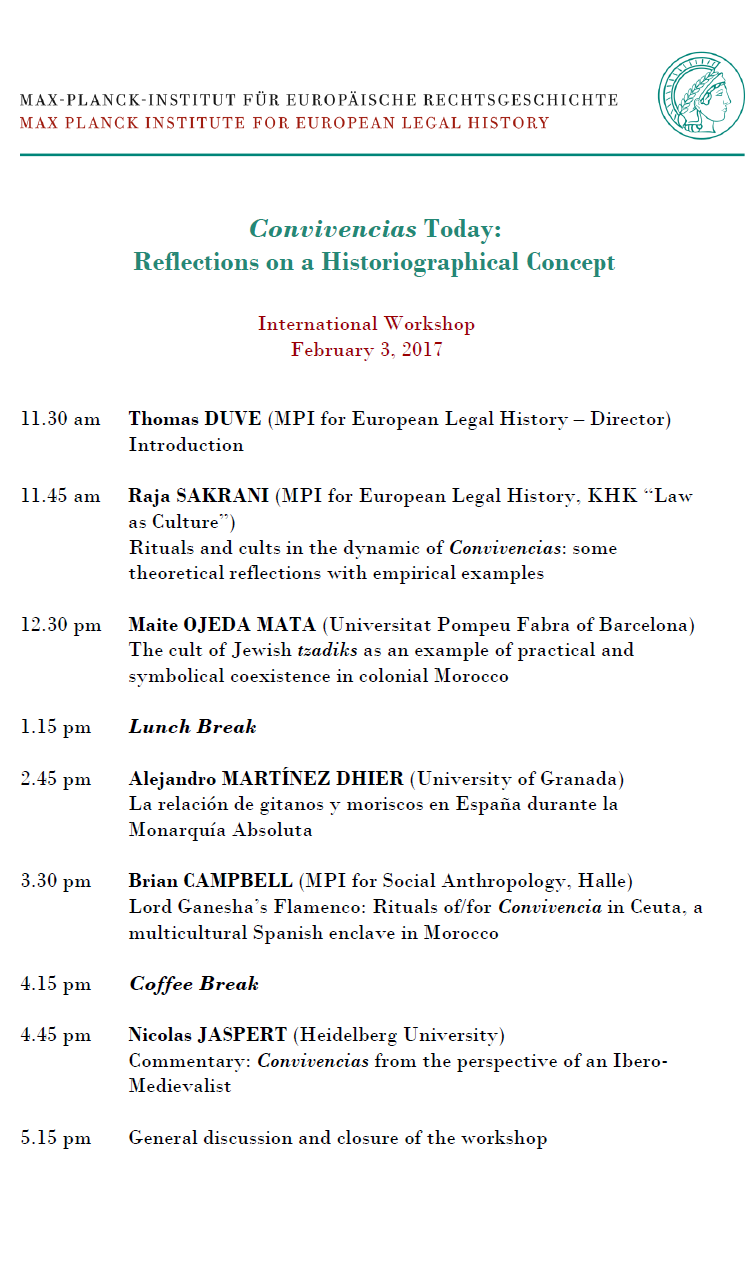Feb 3, 2017
Convivencias Today: Reflections on a Historiographical Concept
- Workshop
- Dept. Renn
As part of the larger project “Convivencia: Iberian to Global Dynamics, 500–1750,” this workshop organized by the MPIeR will examine some ways in which the historical experience of Convivencia in the Iberian Peninsula has been resurrected as a model for our times. The histories of “Andalusian living together” or of the “Andalusian mutual rejection” are colossal in their complexity. Accounts and perspectives mix, diverge, complement or oppose each other. The objective of this workshop is to explore both the historical meaning of the concept of Convivencia and how it is being employed in current usage.
One specific interest is whether the model has created an enduring “genius loci” still evident in Andalusia. Looking at the situation of the Roma minority in Spain offers an opportunity to consider the Convivencia idea of mutual recognition beyond the frame of Christian, Jewish and Muslim communities (Alejandro Martínez Dhier). Whether and how the concept has traveled back from Spain to the Maghreb, the origin of the Muslim conquerors, will be discussed in a comparative analysis considering the situation of Sephardic Jews in Spain and in North Africa (Maite Ojeda). Studies of Ceuta and Melilla in Morocco complement this view (Brian Campbell). A final contribution will make the link between historical experience and a surprising “survival” of the concept by examining ways in which the normative model of Convivencia is alternately adopted semantically, embraced in substance, or denied (Raja Sakrani). A concluding comment from the historiographic perspective will be formulated by a specialist of the Mediterranean area, Nikolas Jaspert.
- Raja Sakrani
- Associate Researcher: MPIeR
- Scientific Coordinator: KHK “Law as Culture” (Bonn)
Related Project(s)
Program

